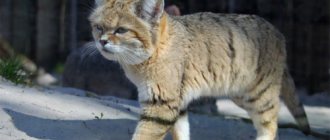All people are different, some prefer to have a cat as a pet, while others prefer dogs. These are absolutely different animals from each other. Cats are more independent, independent, while dogs are more loyal, reliable, and obedient. Although this is not an unambiguous fact. Very often our pets surprise us by displaying character traits that are unusual for them for the sake of their owners or because not all of them are as simple and stereotyped as experts assure us. So which one is smarter: cats or dogs?
What scientists say about this
At the University of Oxford, experts conducted a series of studies with the help of which they wanted to find out who is smarter: cats or dogs? To do this, they had to analyze a lot of data on as many as five hundred types of fossils and living organisms. After this, they were able to conclude that there is a connection between the size of the brain, naturally in relation to the body of the subject under study, and its intellectual abilities.
It turned out that dogs are mammals that have quite large brains, from which they concluded that dogs are more receptive to learning and versatile. Cats' brains, in turn, are smaller than dogs', relative to their overall body mass. And in this case, scientists decided that cats are not so smart, perhaps because they evolved to be more solitary.
However, other American scientists found that a large brain size does not at all mean a genius mind, although these conclusions applied to people. Studies were carried out, as a result of which it turned out that the brains of many brilliant writers and scientists of past years were very small in size and, nevertheless, this allowed them to create great creations known throughout the world.
What is the secret of dogs' genius?
The secret of such intelligence in dogs is their ability to fully interact with people. Unlike other animals, they can accurately read and guess human gestures. Every owner of such an animal has at least once helped him find his favorite toy, simply by pointing in the direction in which it is located.
So whose mind is more developed? If we rely only on the above research results, we can conclude that dogs are superior to cats in intelligence. However, this conclusion is not entirely true, because each type of pet is considered the best in one area or another. What one species cannot boast of is easily given to other living beings.
Based on the above, the following conclusions can be drawn:
- dogs have a well-developed memory;
- dogs are better able to interact with people;
- cats are more precise in their movements and better able to hunt alone and survive in general.
What can be concluded?
Intelligence is an ambiguous concept, and it is not known by what criteria it should be assessed, because cats and dogs cannot be asked to take an IQ test, and besides, scientists have already established that these tests assess intelligence incorrectly. The parameters of the mind are different for different people: someone considers the mind to be a large amount of information stored in the depths of our memory, and someone considers the knowledge of most worldly wisdom and their successful application in everyday life to be the mind, someone recognizes only individuality - the true mind, without a stereotyped education that gives our society only standard individuals. Who is right?
It has long been established that, based on certain parameters of the mind, the smartest animals on Earth are dolphins, followed by horses and then dogs, and one breed stood out - German shepherds. Perhaps because they most often served in the service of law enforcement officials and border guards. However, animals that are friendly to humans, live near them and help them have always and everywhere been taken into account. But there are a number of animals who prefer freedom, at least relative, to service. These include cats. Does this prove their small intelligence?
Interesting Facts
Human friendship with dogs and cats is measured not in years, but in millennia. The former were domesticated more than 30 thousand years ago, the latter - 10 thousand years ago.
Over the many years of their devotion to people, dogs have mastered many professions well: hunter, shepherd and watchman. Over the years, these horizons have expanded. Dogs began to be used as driving force. And these days they may well be police officers, rescuers, guides, sappers and even postmen.
© shutterstock
Cats, according to most dog lovers, are practically useless, but this is not true. In ancient Egypt, they were tamed to fight mice that stole grain reserves. Today, some “purrs” have forgotten a little about their purpose, and prefer reclining on a comfortable sofa to hunting.
Why are dogs smarter than cats?
Such pets have a number of undoubted advantages, such as devotion, fidelity, and obedient execution of commands. In addition, dogs are capable of many other actions. Why do they get dogs? They protect the house and the person, they are friendly to their owner and are ready to protect him to the last drop of blood. How correct are the beliefs of psychologists that dogs are owned by those people who lack confidence in the future, in their strengths and the reliability of this world, who need a faithful friend?
Why are dogs smarter than cats? Because they:
- adapt very well to society;
- highly socially active;
- acquire the necessary skills faster;
- more obedient;
- They respond well to training and there are many other positive traits that dog breeders will add.
Cats are smarter than dogs. But they hide it carefully
For a long time it was believed that dogs are smarter than cats. Finally, the scientists admitted their mistake.
Photo: GLOBAL LOOK PRESS
For a long time it was believed that dogs are smarter than cats. Scientists have even created a theory that substantiates this thesis. Its essence is that an individual cat is a much more effective hunter than a wolf, and even more so its descendant, a dog. In other words, it is easier for a cat to catch a mouse than for a dog to catch a hare. And it’s not a matter of size; a lynx can handle a hare much faster than a watchdog. Dogs have to compensate for their lack of hunting talent by hunting in a pack, where it is necessary to distribute roles and act in concert. Therefore, dogs have developed high social intelligence. But individualistic cats don’t need it - they already feed themselves well. Therefore, around the world, about 12 scientific laboratories study canine intelligence, and only the clown Kuklachev was interested in the mental abilities of cats. Attempts to conduct cognitive experiments with cats invariably ended in failure: tabby cats either ignored the scientists’ research endeavors or generally hid under the sofa. This was regarded as a manifestation of low mental abilities. Gradually, the version of the intellectual superiority of dogs over cats acquired the status of an axiom that does not require proof.
Cat revolution
However, in the last decade, events have occurred in science that have been dubbed the “cat revolution.” Firstly, neurophysiologists have obtained amazing data. Fans of canine intelligence have long trumped the fact that watchdogs have more brain weight relative to their body than cats. However, Ursula Dicke from the Institute of Brain Research at the University of Bremen (Germany) found that this lag of the brain is compensated by a higher density of “packing” of neurons in the cerebral cortex (namely, it is responsible for higher nervous activity). Therefore, a cat with a brain weight of 25 grams has almost twice as many cortical neurons (300 million versus 160 million) than a dog with a brain weight of 75 grams. Another researcher, Francis Doré from the University of Laval (Canada), found that short-term memory in Murzik dogs is much better than in dogs. This was discovered during a simple experiment. The animals were shown tasty food, then they hid it and distracted the pets with something. The cats remembered the “stash” for 16 hours, but the dogs forgot after just 5 minutes!
The striped ones just don’t like to obey...
Based on these data, scientists returned to the study of cat intelligence, and the most impressive successes were achieved by Kristin Vitale from the University of Oregon and her colleagues. They managed to break the cold wall of misunderstanding that separated the scientists and the striped heroes. It was found that with proper preparation of the experiment (cats had to be kept on a diet or in isolation for a long time), cats are at least as good as dogs.
For example, contrary to the popular belief that people are only interested in snow leopards as food suppliers, it turned out that cats value friendship with their owner above food. The experiment looked like this: 19 cats were locked in turn to “meditate” for 2.5 hours in an empty room, then released and observed which activities would be a priority for him. And the striped one was offered the following choice: enjoy a tasty treat, have fun with a toy, sniff a seductively smelling bait, or purr with its owner. So, half of the cats preferred to communicate with humans first; food came in the background. Moreover, most of the time of the experiment—65%—the tailed animals rubbed themselves next to the owner.
You can repeat Christine’s other experiment at home: take two bowls, turn them upside down, put a treat under one of them, and then invite your “king of the beasts” (he should not see how the treat is hidden). Now pointing at the bowl of treats, try to persuade the cat to come to it. If a cat understands what you want from him and fulfills the request, he is a genius! Because understanding the intention of another living creature is an incredibly difficult task for animals. Previously, it was believed that only dogs and primates could perform this test correctly, and cats could not do it. But Christine Vitali believes that the cats understood everything perfectly well, and looked “slow-witted” because they do not like to obey.
Perhaps they are afraid that if people find out about their abilities, they will be forced to work like dogs. According to the researcher, cats may well replace dogs in search work. Cats can find drugs in a criminal’s luggage, find living people under rubble, or recognize human cancer by smell. We just need to develop training methods. Christine Vitali and her co-authors believe that the "dog" approach does not work here. For murkas, the main motivation is not a treat at all, but stroking and praise from the owner.
How to measure the intelligence of a tailed pet
ANECDOTE ON THE TOPIC
Your best friend is a dog! Don't believe me? Try an experiment: lock your dog and your wife in the trunk of a car together. After an hour or two, open it. Who do you think will be happier with you?
Why are cats smarter than dogs?
Cats always walk on their own. They are very freedom-loving and independent. Who gets these pets? People are free, introverts who are used to living in their own world. They are mostly independent, love peace, are individual and not too sociable. Of course, all this is formulaic. We are all different and can get this or that animal for completely different reasons.
Cats are undoubtedly smart because they:
- very careful and prudent;
- are able to imagine a situation to their advantage;
- they are affectionate and know how to manipulate people more than other animals;
- They are extremely independent and know how to survive various dangers, because it is not without reason that they say that cats have nine lives.
Before posing the question of which of our smaller brothers is smarter, we should first determine the parameters of the mind and finally find out what it is? Friendliness and obedient execution of commands, or cunning, restraint and life by your own rules.










